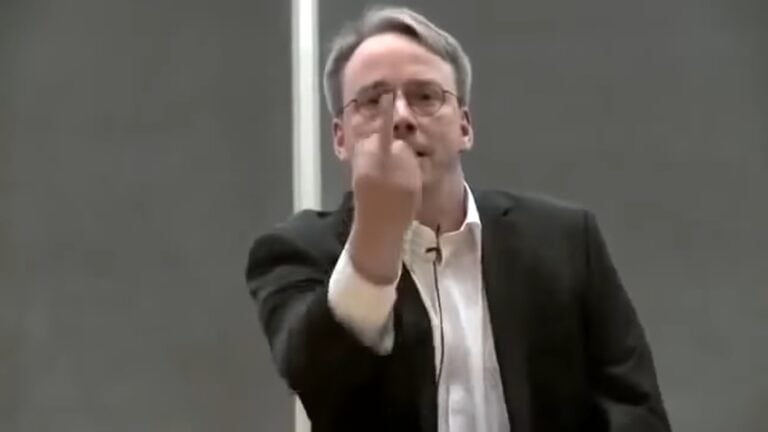Linus Torvalds has publicly called out a Linux kernel developer for a late patch that “makes the world actively a worse place to live.” The Linux founder’s fierce response is reminiscent of his infamous rants from the past.
Torvalds aimed Palmer Dabbelt, a Google employee and long-time contributor, who submitted a series of patches for RISC-V support in Linux 6.17. The timing of the submission, one day before the merge window closed, was problematic, but Torvalds was particularly dissatisfied with the quality of the code itself.
A toned-down version of the past
Although his criticism was sharp, Torvalds remained relatively civil compared to his outbursts in the past. In 2018, he apologized for frivolous attacks that were unprofessional and took a break from kernel development. He returned with the intention of toning down his rhetoric.
His infamous attitude was perhaps best demonstrated in a 2012 interview, in which he directed sharp criticism and a middle finger at Nvidia. Still, this was relatively mild compared to his response to Intel’s Spectre patch. These aggressive reactions have been known to drive developers away from the kernel project.
Bad code and late patches
“This is garbage and it came in too late,” Torvalds wrote in his response on the Linux kernel mailing list. He had asked developers to submit early pull requests because of his travel plans. But even if the timing had been better, the quality of the code would have remained problematic.
The main problem concerned a helper function for converting two unsigned 16-bit integers to a 32-bit integer. According to Torvalds, this function was “useless garbage” that made the code more difficult to understand. Worse still, the function was placed in generic header files outside the RISC-V codebase, which meant that other developers might use it.
Quality control remains important
The incident shows that Torvalds continues to set high standards for code quality in the Linux kernel. His zero tolerance for late and poorly written patches serves as a warning to all contributors. After all, the kernel forms the basis for millions of systems worldwide.
Dabbelt accepted the criticism and admitted that he dropped the ball. He promised not to be late with pull requests anymore and hoped that this would help with quality issues. Torvalds’ message was clear: “No more late pull requests, and no more garbage outside the RISC-V tree.” The developer is under supervision for future contributions.
